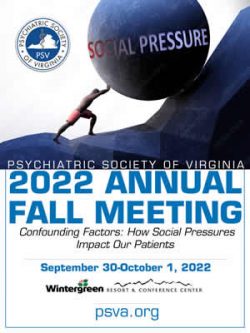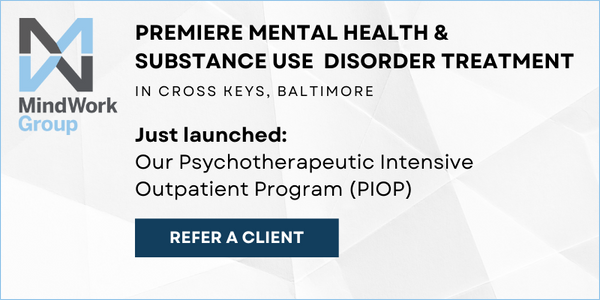By Ihuoma Njoku, MD
PGY-3, UVA Department of Psychiatry
and Neurobehavioral Sciences
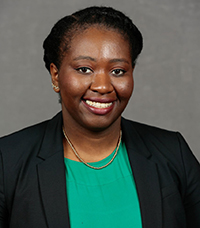
This year’s APA Annual Meeting was the first since the COVID-19 pandemic to be in person, and it was a welcome change of pace. Hosted at the lengthy Ernest N. Morial Convention Center in sunny New Orleans, Louisiana, there were many fantastic talks and poster presentations, including some by our colleagues from Virginia.
A very notable talk on the first day of the meeting was by Grégoire Ahongbonon. He is a tire repairman-turned-mental health advocate from Benin. Awarded the inaugural Chester M. Pierce Human Rights Award, he provided a compelling speech about his advocacy for over 20 years for individuals with mental illness. He spoke of the lack of understanding of some of these individuals and the use of chains or wooden logs as round-the-clock restraints for people with severe mental illness. He brought a set of chains, demonstrating the gravity to the audience. In addition, he trains nuns who work as nurses locally to learn treatment and triage in the community. Cases requiring more support go to one of his hospital clinics. He further spoke of the recovery of those he has served. Many continue to work at his facilities. In addition, he supports training in mental health in countries in West and Central Africa. Finally, he noted that his annual budget is less than $1 million, spending about $800-900 thousand on psychotropic medications. It was regarded as “one of the best talks I’ve ever been to” by PGY-4 Psychiatry Resident Patrick Buckley from the University of Pittsburgh and by this writer.
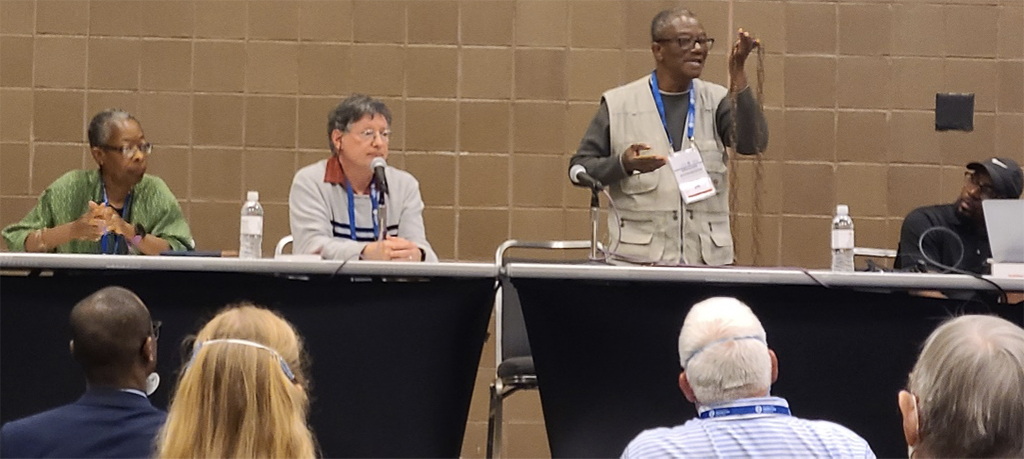
There were also several talks timely to the national climate. For example, an address on the “BITE” of cults was a compelling introduction to the influence of ideas on behavior. In particular, separating these aptly named “Extreme Overvalued Ideas” from psychotic delusions is important in assessing and treating those with ideas or ideals that are not mainstream. Further, the methods of maintaining influence and control were interesting to learn.
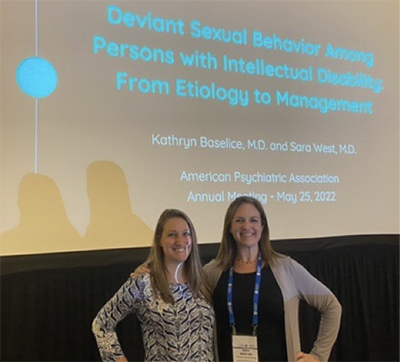
Dr. Kathryn Baselice, Forensic Psychiatry Fellow of the University of Virginia, chaired a presentation with Dr. Sara West on the etiology, assessment, and management of deviant sexual behavior in persons with intellectual disabilities (PWIDs). They emphasized the importance of developmental and behavioral interventions and pharmacotherapeutic strategies. This talk also reviewed various paraphilias and paraphilic disorders.
Lastly, this was the 50th anniversary of Dr. John Fryer speaking at the APA Annual Meeting, advocating the removal of homosexuality from the DSM, an essential acknowledgment of the legacy of psychiatry, the progress made, and the continued improvements that are needed.
50th Anniversary Dr. John Fryer Panel Discussion
About the APA/APAF and SAMHSA Fellowships
The APA has several opportunities to support the interest of the medical student and resident trainees. Residents have 1-2 year fellowships that focus on a trainee’s interests and join a community of over 100 fellows per year. One thing to clarify is that these are non-academic fellowships, more supplemental experiences completed during training. As one of the 2021-2023 APA/APAF Leadership Fellows, we have monthly meetings and discuss topics in leadership with invited speakers, including APA CEO Dr. Saul Levin. We also work on academic projects and share our experiences with different institutions.
Other fellowships focus on working with US legislators, promoting future minority leaders, forensics, child and adolescent, and public psychiatry. As part of our fellowship, we also serve as part of an APA Council or Committee. It has been interesting to learn about the structure of the APA and the individuals who help keep it going. Applications usually open in the late Fall and close in January.
https://www.psychiatry.org/Residents-Medical-Students/Medical-Students/Medical-Student-Programs

